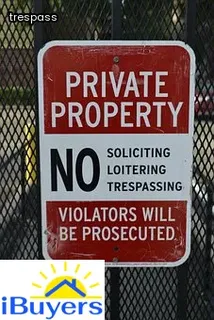When evicting a family member with no lease, it is important to understand the legal process. First, it is essential to determine if the occupant has a legal right to stay in the home.
If they do not have a lease agreement or other form of occupancy rights, the next step is to serve them with an eviction notice. This document should include specific instructions for when and how the occupant should vacate the property.
It is also important to ensure proper delivery of the notice and document any attempts at service of process. After delivering the eviction notice, landlords may need to take further legal steps such as filing an unlawful detainer lawsuit in order to successfully remove an unwanted tenant from their property.
Knowing local laws and following proper procedures can help landlords safely evict an unwanted occupant from their home while protecting their own rights and interests during this difficult process.

Navigating the legalities of eviction can be a complex process, especially when it comes to dealing with an unwanted occupant. It is important to understand the laws of your particular state and take measures to ensure that you are evicting legally and safely.
Generally, the first step in legally evicting an unwanted occupant is providing written notice that outlines the reasons for eviction. Depending on your state's laws, this notice could be verbal or written and should inform the tenant of their right to appeal or contest the eviction.
After providing notice, you should also document your attempts to communicate with the tenant as well as any responses from them. Additionally, it is important to keep track of all payments made by tenants during their residency in order to avoid future legal complications.
If a tenant refuses to leave after being served proper notice, then a landlord must file an official eviction lawsuit in court before they can proceed with physically removing the tenant from their property. Ultimately, understanding your rights as a landlord and researching local laws will help make navigating the legalities of eviction easier and more successful.
As a property owner, understanding your rights is an essential part of evicting an unwanted occupant from your home safely and legally. To begin, it is important to understand that you have the legal right to exclude any person from your property who does not have permission to be there.
In most cases, this means that if you own or rent a home or apartment, you can legally evict someone who is living on the property without your consent. In some cases, you may even have the legal authority to remove someone from your property even if they are not living on it but are simply trespassing.
Additionally, depending on where you live and what type of tenancy agreement was in place with the unwanted occupant, eviction laws may also provide protections for both yourself and the tenant. For example, some states require landlords to give tenants a certain amount of notice before they can be evicted as well as provide them with a fair opportunity to contest their eviction in court.
Knowing these laws and understanding your rights as a property owner can help ensure that you are taking the appropriate steps when evicting an unwanted occupant from your home.

When evicting an unwanted occupant from your home, it's essential to understand tenant status and trespassing laws. Knowing whether the occupant is legally considered a tenant or a squatter can help determine the steps you must take to properly evict someone from your property.
Tenants are generally people who have entered into a rental agreement with the homeowner, while squatters are those who do not have permission to be on the premises. Tenants may be entitled to certain legal protections, while squatters may be subject to trespassing laws.
Depending on where you live, eviction processes for tenants and squatters may differ significantly, so it's important to familiarize yourself with local statutes before beginning an eviction process. Additionally, it's important to understand any applicable landlord-tenant laws that could affect the eviction process or limit your rights as a homeowner.
As such, contacting an attorney or tenant resource center before starting any eviction proceedings is highly recommended.
When it comes to evicting an unwanted occupant from your home, making an informed decision about when to call the police for trespassing is essential. Deciding whether or not to involve the authorities requires a careful consideration of the facts of your particular situation and the legalities involved.
In some cases, a verbal warning may be enough to make the occupant leave voluntarily and without involving law enforcement. If you feel threatened or believe that physical harm may come to yourself or others if the occupant remains, however, it's important to contact your local police department as soon as possible.
In addition to gathering information on local laws governing eviction procedures and understanding your rights as a homeowner, it's also wise to consult with an attorney who can advise you on any potential legal ramifications of calling in law enforcement. Taking these steps will ensure that you make an informed decision when it comes time to evict an unwanted occupant from your home.

When it comes to evicting an unwelcome guest from your home, it is advisable to seek legal assistance. As the process of removing someone from a property can be complex and involve various steps, having the guidance of an experienced lawyer can ensure that all laws are followed and the eviction is done in accordance with local regulations.
Professional lawyers can provide invaluable advice on how to write letters or notices for evicting a tenant, how to properly serve these documents, and how to prepare for a court hearing if one should arise. Additionally, they may also assist in filing necessary paperwork with authorities and have knowledge of specific state eviction laws.
Eviction proceedings can be difficult and time consuming; seeking legal assistance will help you protect your rights as a homeowner and make sure that the whole process takes place without any issues.
When evicting an unwanted occupant from your home, it's important to know the consequences of trespassing in order to stay within legal bounds. Depending on the state and local laws, penalties for trespassing can range from a warning or fine to jail time.
Generally speaking, individuals found guilty of trespassing may be subjected to civil or criminal penalties, depending on the severity of their actions. In some cases, first-time offenders may be let off with a warning; however, repeat offenses are likely to incur stiffer fines.
Additionally, the penalty for trespassing will also depend on whether or not the offender had permission to be there in the first place. In most cases, individuals who trespass without permission will face harsher penalties than those who have been given prior authorization by the property owner.
It is important to familiarize yourself with local laws as they pertain to trespassing before attempting to evict an unwanted occupant from your home so that you don't find yourself in hot water later down the line.

If a relative becomes a tenant in your home, it can be both positive and negative. On one hand, it can provide you with financial stability as the tenant pays rent and helps to maintain the home.
On the other hand, it can complicate matters if there is a dispute or disagreement between family members over terms of tenancy. It is important to set clear guidelines from the outset to avoid any confusion or misunderstanding that could lead to eviction proceedings.
This includes determining how much rent will be paid, when payments are due, what services will be provided (if any), and how long the tenancy agreement will last. If at any point these terms are broken or the relative fails to abide by them, then it may be necessary to evict them in order to protect your property rights as a landlord.
In this case, you should familiarize yourself with local laws and regulations regarding eviction procedures so that you can safely remove an unwanted occupant from your home.
Evicting an unwanted occupant from your home can be a difficult and confusing process, so it's important to understand the proper eviction procedures and timelines. Depending on your state or local laws, you may need to provide the occupant with a written notice of eviction stating the reason for their removal and the date by which they must vacate.
In some cases, you may also be required to serve them with an official court order. If they still refuse to leave after receiving the notice, then you may need to file a formal lawsuit against them in order to obtain a court judgement authorizing their eviction.
After obtaining that judgement, you should contact your local law enforcement agency who will help ensure that the occupant is safely removed from your property in accordance with all applicable laws. It's important to note that any attempts to physically remove an occupant yourself can be dangerous and potentially lead to criminal charges, so it's best to rely on law enforcement when taking this kind of action.

Eviction is a stressful process, but it can be managed more peacefully and legally if you understand the legal rights of both the property owner and the occupant. Depending on your state's laws, you may need to give the occupant written notice in order to begin the eviction process.
It is important to ensure that any notice complies with local regulations so that it holds up in court if necessary. Generally, this means providing details of why the eviction is taking place, how long the occupant has to leave, and other important information.
You must also make sure that you serve the notice correctly; for example, some states require service by a Sheriff or other third party instead of simply giving it directly to the occupant. If you take this route, make sure you follow all instructions provided by your local court or law enforcement office.
After giving adequate notice and ensuring that it was properly served, file an eviction complaint with your local court system; this will likely involve completing paperwork and paying a filing fee. The court will then schedule a hearing date where both parties have an opportunity to present their case and a judge will make a final ruling on whether or not an eviction should take place.
Evicting an unwanted houseguest can be a difficult process, so it is important to know what resources are available to help. Before beginning the legal process, it is essential to understand your rights and obligations as a homeowner.
Researching state and local laws is the first step in knowing what steps to take when proceeding with an eviction. This includes understanding the proper notice requirements for eviction, as well as any other legal documents that may be needed before beginning the process.
Additionally, there are organizations such as tenant advocacy groups or legal aid services that provide assistance in understanding state laws and tenant rights. Working with a lawyer who specializes in landlord-tenant law can also provide guidance in navigating the eviction process.
Once you have researched all of your options and are aware of the necessary steps required by law, you will be better prepared to safely evict an unwanted occupant from your home.

When it comes to evicting an unwanted occupant from your home, the decision to take legal action should not be taken lightly. You must consider all of your options, including talking with the occupant and offering them a financial incentive to leave if possible.
Legal action can be costly and time-consuming and can draw out the eviction process. It is important to research your state's tenant rights laws, as they vary widely by jurisdiction.
In some states, landlords may be able to begin eviction proceedings without going through the court system, while in other states landlords must go through a lengthy court process. You will also want to find out what type of notice you are required to give the tenant before taking legal action.
The most effective way to ensure that the eviction runs smoothly is by consulting an attorney who specializes in landlord-tenant law. They can provide advice on how best to proceed with the eviction and explain any applicable regulations or restrictions that could affect your case.
One of the most difficult situations a homeowner can face is having an unwanted occupant in their home. Evicting someone can be an emotionally and legally complex process, but it doesn't have to involve confrontation.
Knowing the different strategies for dealing with an unwilling houseguest without confrontation can help make the eviction process smoother and more successful. Before taking action, homeowners should become familiar with their local laws regarding tenant rights, as well as any applicable state or federal laws.
This will ensure that they are following the proper protocol in order to safely evict their tenant. Additionally, landlords should consider using alternative dispute resolution methods such as mediation or arbitration, which can help resolve potential issues before they escalate into a full-blown eviction.
Landlords should also keep all communication with the tenant professional and document every interaction in case legal proceedings need to be initiated down the road. Finally, if all other options have been exhausted and an eviction is necessary, knowing how to file the proper paperwork and complete each step of the process correctly will ensure a successful outcome for both parties involved.

Evicting an unwanted occupant from your home can be a stressful and daunting process. The best way to ensure a smooth transition is to explore all available solutions before taking legal action.
One of the most effective methods is to speak directly with the tenant and negotiate an agreement that works for both parties. This could involve the tenant agreeing to a payment plan or vacating within a certain timeframe.
If they are unwilling or unable to meet your demands, then you may need to involve a third party mediator such as a lawyer or local housing authority. Another option is to serve an official notice, giving the tenant ample time to comply with your request and remove themselves from your property.
Lastly, if all other attempts fail, you may need to obtain a court order for eviction which will ultimately require legal action.
When inviting houseguests into your home, it is important to set boundaries from the start. Establishing clear expectations and rules can help create a positive environment for both you and your guests.
Make sure to let your guests know what areas of the house are off-limits, such as private bedrooms or bathrooms, as well as any other expectations you may have. Additionally, if possible, ask that they respect quiet hours so that everyone in the home can get the rest they need.
If an unwanted occupant refuses to follow these guidelines, it is important to take action immediately. If a conversation doesn’t resolve the issue, legal steps may be necessary in order to protect your rights and ensure a safe environment for all occupants of your home.

When inviting a guest to stay in your home, it is important to set clear expectations and boundaries from the start. If you anticipate that a guest may overstay their welcome, it is best to discuss this prior to inviting them.
Be mindful of the length of time you are comfortable with someone staying in your home and communicate this with them. If necessary, offer suggestions for alternative accommodations for when the agreed-upon time has passed.
Establishing ground rules during the initial conversation can help prevent confusion and potential conflicts down the road. Additionally, having a written agreement outlining the details of their stay can be beneficial.
This document should include information such as their expected length of stay, agreement on costs (if any), rules regarding guests visiting your home, etc. Should an unwelcome occupant remain in your property after their allotted time, it is important to take action immediately in order to protect yourself and reclaim your property.
Depending on local laws and regulations, you may need to serve legal notice or contact law enforcement if they fail to leave voluntarily. It is essential that you follow all necessary steps in order to ensure a safe eviction process.
Evicting an unwanted occupant from your home can be a difficult and emotionally draining experience. It is important to prepare yourself mentally and emotionally for the process ahead.
Start by acknowledging that this is a difficult situation, but one that must be addressed for you to regain control of your home. Set boundaries and make sure you are clear about what those boundaries are before beginning the eviction process.
You may also find it helpful to talk with a trusted family member or friend or seek the advice of a professional counselor if needed. Additionally, consider how best to keep yourself safe during the eviction process, such as having someone else present while dealing with the unwanted occupant or having law enforcement on standby if necessary.
Understand that this difficult situation will eventually end and when it does you will be able to move forward in peace.

When evicting a relative or guest from your home, it is important to protect yourself against any potential liability. Depending on the situation, it may be best to consult with a lawyer before proceeding with the eviction.
It is essential to ensure that all local and state laws are followed in order to avoid legal repercussions. Complying with any applicable landlord-tenant laws will also help protect you from potential lawsuits.
When notifying the unwanted occupant of the eviction, make sure to do so in writing and provide them with sufficient time to vacate the premises. Knowing your rights as a landlord and understanding the eviction process is also key in protecting yourself from liability.
If necessary, seek assistance from law enforcement when carrying out the eviction for added protection and safety.
Success stories of people who successfully evicted unwanted occupants from their homes can be an excellent source of inspiration and guidance for others who find themselves in the same situation. Eviction laws vary by state, so it is important to become familiar with the rules and regulations before proceeding.
In some cases, a formal eviction process must be followed to ensure that all legal obligations are met. Being prepared ahead of time can dramatically reduce the stress associated with this type of situation.
People have reported success using various methods such as written notices delivered in person, court hearings, and police involvement. The most important factor is to remain calm during the process and use appropriate approaches to resolve the issue without escalating tensions.
With proper planning and knowledge about the laws, anyone can safely evict an unwelcome guest from their home and put their minds at ease.
Evicting an unwanted occupant from your home can be a daunting task, but with the proper procedure and legal guidance you can safely remove someone who won’t leave. The first step is to serve an eviction notice, which is a written document that requires the tenant to move out within a certain amount of time.
If they don’t comply, you can file an eviction lawsuit in court. Once the court has reviewed your case and found in your favor, you will receive a writ of possession.
This document authorizes local law enforcement to physically remove the person from your property. It’s important to note that you cannot forcibly evict someone yourself or take any other actions that could be seen as harassment or illegal retaliation.
With patience and professional help, you can ensure that the process is conducted legally and safely.

If you are looking to get your girlfriend out of your house, it is important to know how to safely and legally evict an unwanted occupant from your home. The process of eviction can be complicated and emotionally charged, so it is important to understand the laws in your state before proceeding.
Start by following all the steps required for a legal eviction, such as providing written notice and filing the appropriate paperwork with your local court. You will also need to be aware of any applicable tenant rights that may apply in your situation.
Once the paperwork has been filed and served, if the tenant does not vacate within the allotted time frame, you may need to hire an attorney or have a sheriff present at the eviction. It is important to keep in mind that communication during this process should remain professional and courteous regardless of emotions involved.
Knowing how to safely and legally evict someone from your home can help avoid costly delays or additional complications down the road.